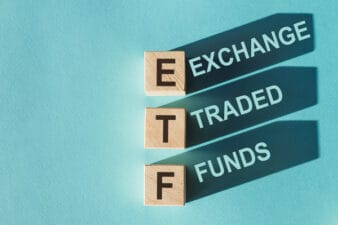Stephen Jarislowsky needs no introduction to serious investors.
He is the founder, chairman, and former CEO of Jarislowsky Fraser Limited, which he founded in 1955 after a stint as an engineer for Alcan in Montreal. His firm has grown to be a true giant in the investment business, managing more than $36 billion in pensions, endowment funds, and portfolios for both corporate and private clients.
According to Canadian Business, Jarislowsky has a net worth of $2.1 billion, making him the 46th richest man in Canada. Unlike most of his peers, however, Jarislowsky is one of only a few true investors to make the list. The others were entrepreneurs.
Thus, when Jarislowsky talks, it’s prudent to listen.
The 91-year-old investor extraordinaire recently was interviewed on Business News Network, where he weighed in on a bunch of different topics. Of particular interest were his opinions on Toronto real estate.
The future for Toronto
Jarislowsky didn’t mince words when host Greg Bonnell asked him his views on Toronto real estate:
I would think the housing market in Toronto is definitely something that will come down and come down with a bang. And not enough is being done in order to control it. Housing basically should only rise by the extent of inflation, which is very low, and the extent of the productivity of the country, which in Canada is also very low. So I think that this is an accident that is waiting to happen.
He also believes housing policy is weighing in on other parts of the economy: “I don’t believe that Canada can raise interest rates to the level [that competes with various U.S.-based dividend stocks] because of the fact it would do enormous damage to our real estate situation and mortgage rates.”
Hundreds of other pundits, investors, and other market participants agree with Jarislowsky’s views, but it’s doing nothing to cool the hottest real estate market in the country. The Toronto Real Estate Board recently reported sales in the Greater Toronto Area increased 5.7% in February, despite the month having one fewer day than last year. The average selling price surged 27.7% higher, hitting $875,983.
The gain is even higher when we look at only detached houses inside Toronto itself. The average detached house inside the Toronto city limits is now $1.57 million, an increase of 29.8%. Even the average semi-detached house in Canada’s largest city is now worth more than $1 million.
Speculators are running rampant with many folks speculating foreign buyers — especially those from China — are responsible for most of the craziness of late. Remember, foreign buyers must now pay a 15% tax if they buy in Vancouver, plus a $10,000-per-year tax on empty homes. Rumours are swirling that the Ontario government will soon pass a similar bill covering Toronto.
The impact on your portfolio
There’s no doubt this bubble will pop someday. The only question is when.
Astute investors are taking their money out now. Thousands of Toronto homeowners are selling and taking their massive tax-free gains and moving to smaller communities. I urge homeowners to do the same thing, and I suspect Jarislowsky would agree.
Investors who don’t live in Toronto can also make a couple of specific moves to minimize their exposure. The easy choice is to sell Home Capital Group Inc. (TSX:HCG) shares, which is Canada’s largest alternative (read: subprime) mortgage lender with a majority of its assets put to work inside the Greater Toronto Area. When the market starts to crash, sentiment against Home Capital will likely turn very nasty.
Investors can also minimize their exposure to Canada’s largest banks, although I think they make it through the crash relatively unscathed. Remember, most traditional mortgages require mortgage default insurance, which protects the lender in case a borrower can’t make their payments.
The bottom line
Legendary investor Stephen Jarislowsky is just the latest to warn investors about Toronto’s housing market. All the signs of a classic bubble are there. Will folks with exposure to the market heed this message? Only time will tell.








